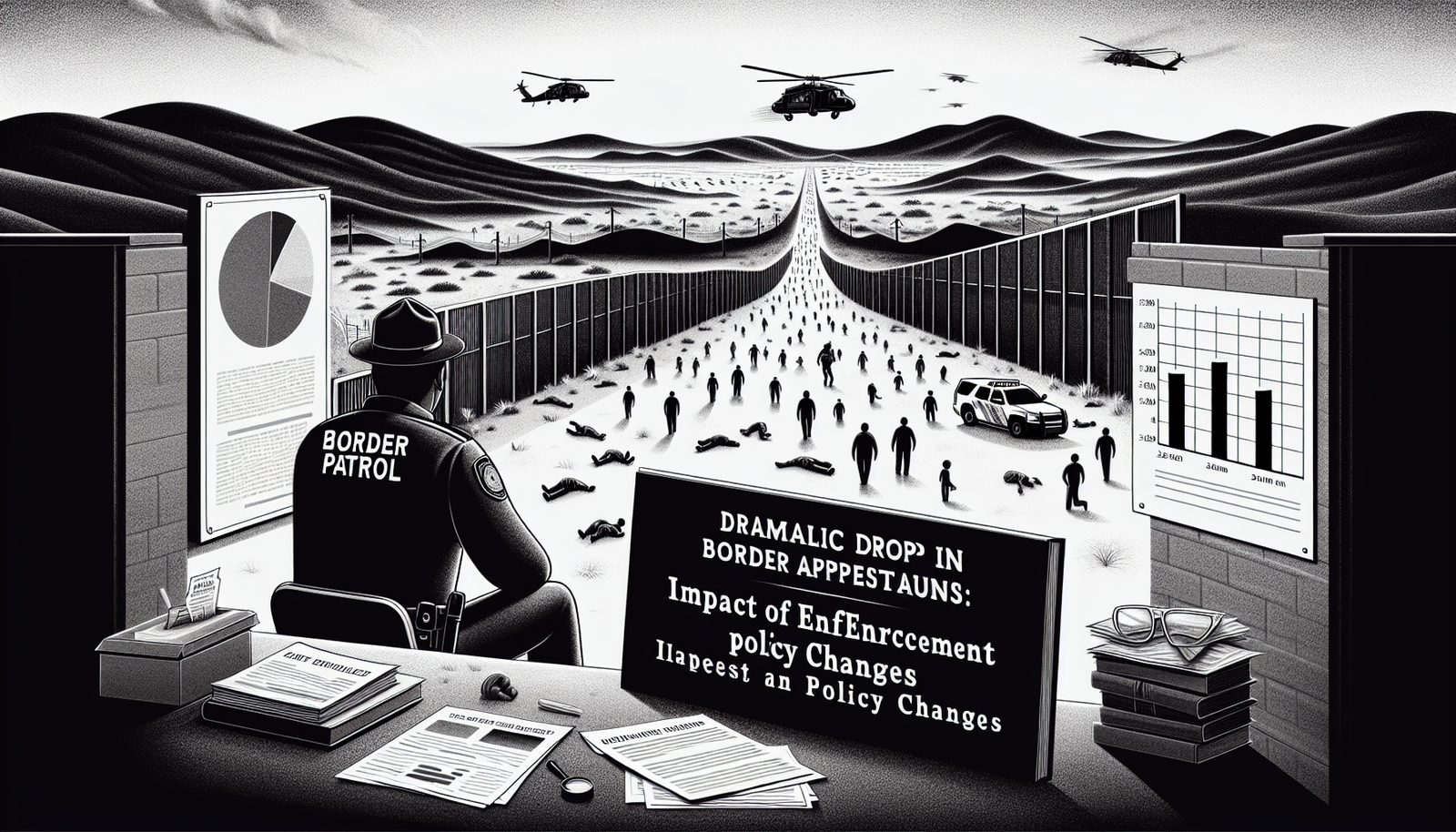
Border Apprehensions and Enforcement
The number of arrests for illegal border crossings has dramatically decreased, showcasing an 80% drop from December to July 2024. This decline can be attributed to two primary factors: heightened enforcement by Mexican authorities and new asylum restrictions implemented by President Joe Biden in June. The substantial decrease in apprehensions is a clear reflection of the changes in border enforcement strategies.
Despite the overall drop, recent statistics indicate a slight uptick in the number of apprehensions. In August 2024, Border Patrol recorded about 1,870 apprehensions per day, compared to approximately 1,797 per day in July. This minor increase suggests that the previously observed decline may be stabilizing or potentially reversing.
Mexico’s Role in Border Control
Mexico’s involvement in controlling migration has been significant. In July 2024, Mexican authorities reported 116,626 encounters with undocumented migrants, making it their fifth busiest month ever. Interestingly, this figure exceeds the number of encounters reported by U.S. authorities at the U.S.-Mexico border for the same month, underlining Mexico’s crucial role in managing cross-border migration.
The enforcement measures taken by Mexico have complemented U.S. efforts, leading to a tangible impact on migration patterns. However, as the situation continues to evolve, both nations will need to maintain strong collaboration to manage the flow of migrants effectively and humanely.
Asylum Policies and State-Level Enforcement
The Biden administration’s new asylum rule, designed to streamline asylum processes, has encountered challenges. The rule intended to reduce the daily number of asylum seekers to below 1,500, but this target has not been met, causing significant delays. As a result, wait times for CBP One appointments have extended to 8 or 9 months, causing frustration and uncertainty among asylum seekers.
On the state level, Texas has intensified its immigration enforcement through Operation Lone Star. This initiative has led to over 45,000 arrests and nearly 40,000 felony charges, predominantly for trespassing on private property. Additionally, Texas has bused approximately 120,000 migrants to cities like New York, Chicago, and Denver, impacting those municipalities’ resources and responses to sudden influxes of migrants.
Safety and Economic Impact
The journey for migrants remains perilous, with reports of kidnappings by organized crime groups in Mexico. In response, Mexico’s National Migration Institute (INM) has initiated an Emergent Secure Mobility Corridor to safeguard migrants traveling for CBP One appointments. Ensuring the safety of migrants is a critical issue that demands continuous attention and robust protective measures.
High levels of illegal crossings have also prompted temporary closures of cargo crossings, with significant economic consequences. For instance, a five-day closure at two border rail crossings caused industries to lose $200 million per day. These disruptions highlight the broader economic implications of border policy enforcement and the need for balanced approaches that consider both security and economic stability.
Political and Legislative Developments
The issue of border policy remains highly politicized, with significant developments expected in the near future. A Congressional hearing is scheduled for September 26, 2024, by the House Homeland Security Subcommittee on Emergency Management and Technology. This hearing aims to scrutinize the impact of the Biden-Harris administration’s border policies on law enforcement, providing a platform for in-depth analysis and potential policy adjustments.
Meanwhile, Donald Trump’s campaign has promised mass deportations of undocumented immigrants. Such measures, if implemented, could have far-reaching economic and social implications, including potential job vacancies and increased unemployment among U.S.-born citizens. Balancing enforcement with the rights and contributions of immigrants remains a complex challenge for policymakers.
Legal and Human Rights Issues
Instances of misconduct by border authorities have brought to light the need for transparency and accountability within agencies like U.S. Customs and Border Protection. Reports of the false imprisonment of U.S. citizen children underscore the urgent need for systemic reforms to uphold the rule of law and protect human rights. Ensuring that enforcement agencies adhere to legal standards is essential for maintaining public trust and ensuring justice.
